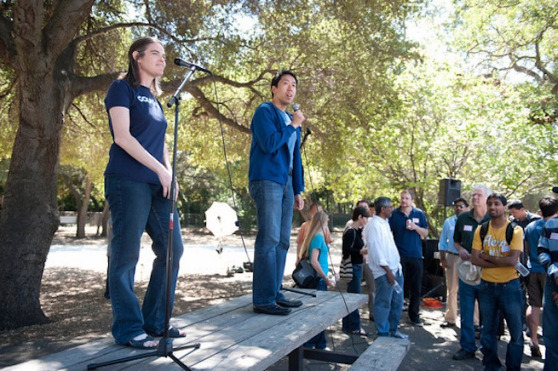Online education startup Coursera just raised an additional $20 million in funding, bringing its mammoth series B round to $63 million.
Coursera was founded by Stanford University professors Daphne Koller and Andrew Ng. It has succeeded in becoming one of the most well known of the massive open online course providers, dubbed “MOOCs.”
It offers video lectures on a variety of practical and academic topics. Professors at some of the most prestigious universities, like Harvard, Stanford, the University of Cambridge, and MIT, teach these courses.
Coursera works with 100 universities in 19 countries. According to a news release, 700 professors and 5.5 million students have signed up to take a course.
The MOOCs certainly have their skeptics, with academics arguing that they are a lesser alternative to education in a physical classroom. However, it’s an option for students who can’t afford college or for professionals who could benefit from some additional job skills. Some of the most popular courses on Coursera are the introductions to data science and computational finance.
Along with the funding, Coursera also announced two key product hires: John Ciancutti and Tom Willerer. Ciancutti, who formerly worked as a senior product engineer at Netflix, will lead the product team. Willerer, who also hails from Netflix, will serve under Ciancutti as the vice president of product management.
These new hires will focus on improving the user experience, with a goal to boost completion rates. Coursera and its rivals, including Udacity and EdX, have all struggled with retention — students rush to sign up to a course, but few actually finish it.
Coursera has been tackling this problem in several different ways. The company recently announced a “Learning Hubs” initiative so students can work together in physical spaces around the world. In addition, the engineering team just implemented a LinkedIn integration — complete a course and you can add this distinction to your profile.
The additional funding was raised from three partner universities that offer courses on Coursera (these institutions have not been announced), GSV Capital and Learn Capital. According to a spokesperson, this funding wasn’t announced until today, as it took longer for the university partners to commit to the round.
VentureBeat's mission is to be a digital town square for technical decision-makers to gain knowledge about transformative enterprise technology and transact. Learn More

